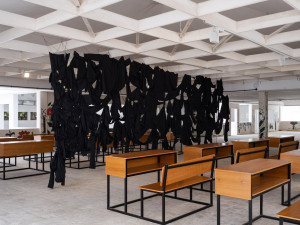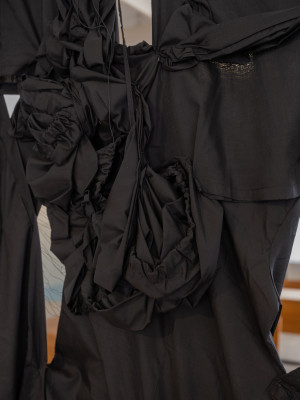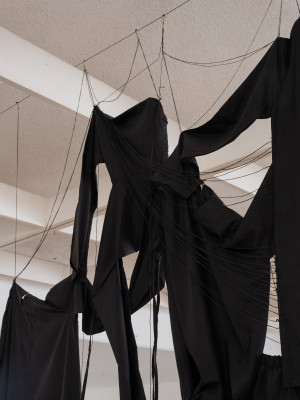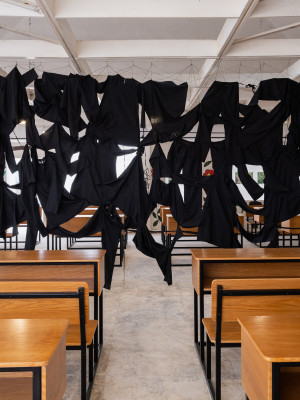Threshold (2022) sheds light on the inequality women face in the education system in Afghanistan. Taliban’s education ban in 2021 posed a direct obstacle to women’s access to education, which is a disturbing history recurrence of Amiri’s memory as a schoolgirl in 1996 Kabul. The artist recreated the classroom settings of a secondary classroom from her childhood memory and intentionally distorted the material details and space arrangements in an effort to change the narrative around women’s education in Afghanistan.
The installation consists of a mural-sized textile piece of black school-girl uniforms and eighteen sets of wooden school tables and benches that were often used in Afghan secondary schools. As many of the school infrastructures in Afghanistan were donated by international, especially Western, NGOs, the investigation of materials in this installation is a critical commentary on the interwoven geopolitics behind Afghanistan's education systems. The tender fabrics in contrast to the hard-edge wooden benches bring forth the overlooked dimension of women’s experience in the classroom, including the emotional, intellectual, and aspirational.






